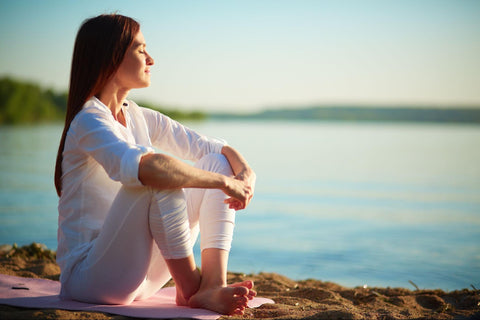

The thought of experiencing a natural disaster can be intimidating and stressful. While living through a natural disaster can be traumatizing. The truth is natural disasters are frightening.
However, the reality is, natural disasters do happen, and an intense fear of them can lead to a lack of preparation. So instead of letting your fear paralyze you, it’s important to let it propel you to take action.
We know that’s not always easy, though. That’s why we created Terra Frma and tons of resources to help you through any natural disaster.
In this article, we’ll take you through some preparation steps, coping mechanisms, and recovery strategies to help you conquer your fear of natural disasters.
Understanding Your Fear of Disasters
The first step to tackling your fear is understanding natural disasters and what about them creates fear. Disasters are caused by natural forces such as earthquakes, hurricanes, floods, wildfires, and tornadoes. These events can cause significant damage to property and people, resulting in trauma and fear. Lilapsophobia, for example, is an unhealthy or extreme fear of tornadoes or hurricanes.
Fear of natural disasters can be rational or irrational, but it is a common response to the potential harm that these events can cause. Unfortunately, fear can hinder preparedness and response, causing people to avoid thinking about and planning for disasters.
Overcoming Your Fear of Natural Disasters
As always, situations seem a lot less scary when you’ve prepared for them, and you know exactly what to do in their occurrence. You may also feel a lot less anxious when you have an understanding of the potential risks and outcomes.
Here are some active steps you can take to conquer your fear:
Educate yourself about natural disasters
Learning about natural disasters and their causes can help you understand the risks and how to prepare for them. Know what natural disasters commonly affect your area, research the warning signs, and prepare for those. Stay informed about local hazards by watching the weather, listening to the news, and following trusted sources of information.
Make a plan
It’s essential to be prepared to evacuate at a moment’s notice. Have an evacuation plan outlining the steps for a quick response. This plan should include everything from preparing an emergency kit with enough food, water, and other necessities to last several days, a list of emergency contacts, and a designated meeting place for your family. It would help if you also prepared a backup plan.
Having a plan can help ease anxiety and ensure you are prepared for any eventuality. For help creating a detailed evacuation plan, consult the Disaster Book in the Grab + Go Box.
Practice preparedness
Practice drills and emergency scenarios with your family or household members. This can boost your confidence and make you more prepared in case of an actual emergency. Some ideas are to practice a fire evacuation plan, earthquake drop, cover, and hold response, or your general natural disaster evacuation plan.
Seek support
If your fear of natural disasters is interfering with your daily life or causing substantial distress, seek support from a professional or support group. Talking about your worries and concerns with others can help you feel less alone.
Practicing self-care is also important to help manage your anxiety and stress. Self-care might include exercise, meditation, journaling, using a wellness kit, or spending time with loved ones.
Building Resilience to Natural Disasters
The final step to overcoming your fear of natural disasters is building resilience. Disaster resilience is your ability to adapt and recover from natural disasters without them taking a long-term toll.
Here are some ways you can build resilience:
Prepare your home and property
Ensure your home is structurally sound and you have the necessary supplies and equipment for emergencies, such as backup power, medical kits, and emergency communication devices.
Take measures to protect your property from damage, such as clearing debris, trimming trees, and installing hurricane-proof windows. This might also include installing storm shutters or reinforcing your roof, depending on the types of natural disasters that are common in your area. These actions can help to prevent damage and minimize recovery efforts.
Develop coping skills

Coping skills can help you manage stress and anxiety before, during, or after a natural disaster:
- Practice mindfulness.
- Deep breathing for stress release.
- Other relaxation techniques to help you stay calm.
Connect with your community
Connecting with your neighbors and community can help you feel more supported and less isolated. Get involved in local preparedness efforts and volunteer with disaster response organizations.
Take care of your mental health
Natural disasters can cause significant emotional distress, such as post-traumatic stress disorder (PTSD). Take care of your mental health by seeking support such as cognitive behavioral therapy and practicing self-care.
Final Thoughts
Overcoming your fear of natural disasters and building resilience are essential for your safety and well-being. By understanding natural disasters and their potential risks, making a plan, and taking care of your mental health, you can feel more in control and confident. So, take action today to overcome your fear and build resilience to natural disasters.
Don’t know where to start? The Grab + Go Box is a great place to begin your journey - we’ve even included an entire section dedicated to wellness and coping.





